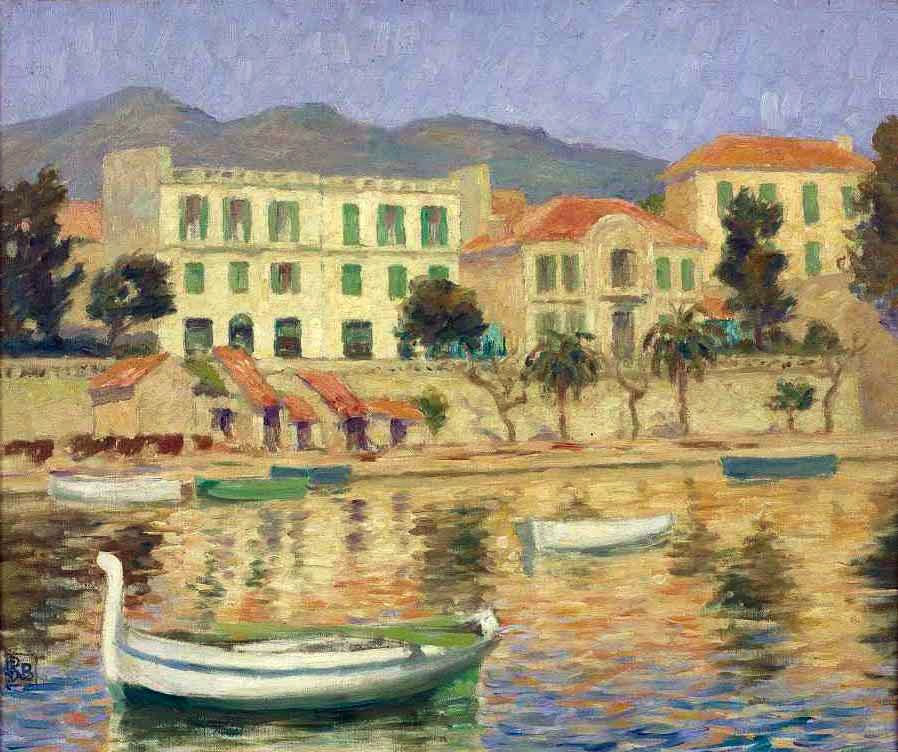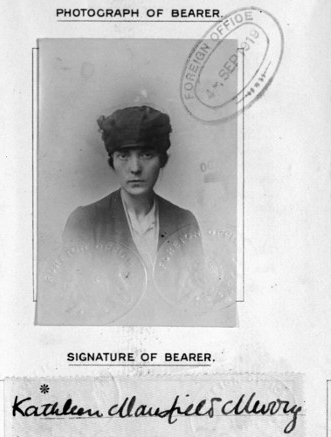Mansfield was in Bandol, a sea resort in the south of France, where she hoped to regain health and stability. However, her time there was unhappy, exemplified by “Pic-Nic,” a poem hinting that her state of mind was no picnic. Perhaps because it was too dark, she never completed it.

Although Mansfield was often unhappy, Bandol was a destination, not a shabby place. Rupert Bunny. The Sea Front, Bandol (1929c.), oil on canvas
Mansfield’s low spirits suggest a premonition of her death. This is recommended when the speaker (presumably Mansfield) throws her notebook away or when the tide is low, rocks weedy, and a cave is dark. Even the image of two women dressed in white huddled together on the beach like swans suggest sleep or stupor.
The poem is jumpy free verse:
When the two women in white came down to the lonely beach
— She threw away her paintbox— and She threw
away her notebook. Down they sat on the sand. The tide was
low. Before them the weedy rocks were like some
herd of shaggy beasts huddled at the pool to drink an
staying there in a kind of stupor.
Then She went off and dabbled her legs in a pool thinking
about the colour of flesh under water. And She crawled into
a dark cave and sat there thinking about her childhood.
then they came back to the beach and flung themselves
down on their bellies, hiding their heads in their arms.
They looked like two swans.
Despite Mansfield’s chronic illness, incipient tuberculosis, she never stopped smoking.
See Keiko Mizuta. “Katherine Mansfield and the Prose Poem,” The Review of English Studies, New Series, (February 1988); Jeffrey Meyers. Katherine Mansfield, the Darker View. New York: Cooper Square Press, 2002. Claire Tomalin. Katherine Mansfield, a Secret Life. New York: Viking, 1987; Gerri Kimber and Claire Davidson. Eds. The Collected Poems of Katherine Mansfield. University of Edinburgh Press: Edinburgh, 2017
Featured Image: Mansfield in her passport photo September 1919. She was married to John Middleton Murry and assumed his surname.

